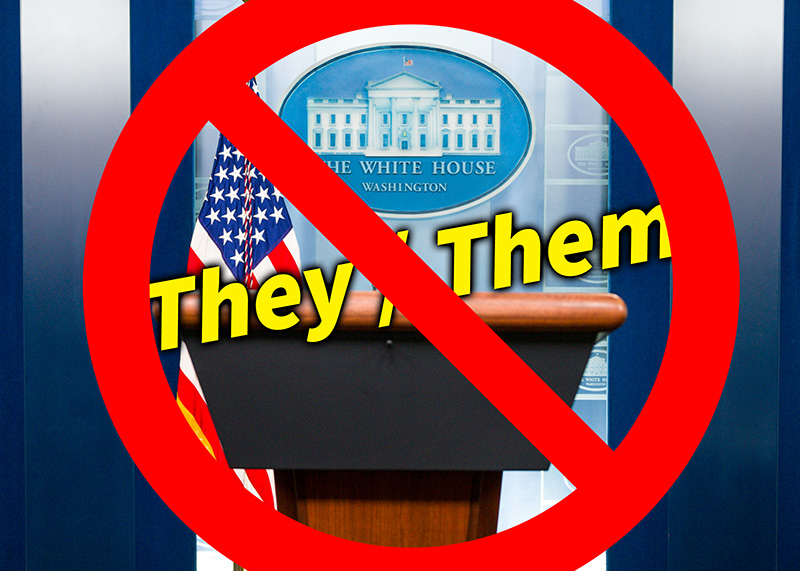Federal judge blocks Trump administration rule eliminating LGBTQ health care protections
Injunction prevents health care providers from claiming religious exemptions to justify denying treatment to vulnerable populations

A federal judge has granted a preliminary injunction to stop the U.S. Department of Health and Human Services from enforcing a recently revised rule that removed protections in health care and insurance for LGBTQ individuals and other individuals from a section of the Affordable Care Act.
The rule, published in the Federal Register in June, sought to redefine the term “sex” in Section 1557 in the Affordable Care Act as referring only to an individual’s assigned sex at birth. Section 1557, as written, prohibits medical providers and insurers from denying care, or coverage for treatment, “on the basis of sex.”
Under the Obama administration, the term “sex” was interpreted not only as a person’s natal sex but their “internal sense of gender,” which extended the protections to transgender and gender-nonconforming individuals.
The revised rule, approved by the Trump administration, also removed provisions prohibiting providers and insurers from denying services or treatment to pregnant women seeking abortions or women who have recently undergone abortions, based on the insurers’ stated religious beliefs.
If enacted, the new rule would effectively allow doctors, health care workers, hospitals and insurance companies to refuse to provide or cover health care services critical to LGBTQ people and other vulnerable populations, such as gender confirmation surgery, hormones, and reproductive health care. It would also restrict access to health care for people with limited English proficiency, who were covered by broader provisions prohibiting discrimination based on race and national origin.
U.S. District Judge James Boasberg, of the District Court for the District of Columbia, found that the coalition of plaintiffs — including LGBTQ organizations and health care service providers, such as Whitman-Walker Health, LA LGBT Center, Bradbury-Sullivan LGBT Center, GLMA: Health Professionals Advancing LGBTQ Equality, the Association of LGBTQ+ Psychiatrists, and the TransLatin@ Coalition, as well as four doctors — had standing to challenge most aspects of the rule.
“Denying an injunction would impede the public interest by threatening the health of LGBTQ individuals at large, some of whom will likely develop increasingly acute conditions on account of their delaying necessary care or refraining from transparent communication with providers out of fear of discrimination,” Boasberg wrote in his opinion.
“There is clearly a robust public interest in safeguarding prompt access to health care. The COVID-19 pandemic only reinforces the importance of that public interest and the concomitant need to ensure the availability and provision of care on a nondiscriminatory basis.”
The injunction, now in place, prohibits the Trump administration from enforcing the rule, and medical providers from seeking to deny coverage to individuals based on their personal religious or moral beliefs. The injunction will remain in place while the challenge to the law navigates its way through the courts before ultimately being heard on its merits.
“We are gratified that the court in an extensive and detailed decision put key aspects of the disastrous and discriminatory health care rule on hold while our challenge moves forward, particularly while in the midst of a pandemic,” Omar Gonzalez-Pagan, a senior attorney and health care strategist at Lambda Legal, which is representing the plaintiffs, said in a statement.
“Health care is a human right and the Affordable Care Act sought to expand access to health care for everyone regardless of their sex, LGBTQ identity, or other characteristics,” Gonzalez-Pagan added. “This administration’s health care discrimination rule is just another example of its disdain for LGBTQ lives and the law. The rule is unlawful and endangers people’s lives, plain and simple.
“A health care policy that is rooted in animus against LGBTQ people, particularly those who are most vulnerable among us like transgender people and those with limited English proficiency, cannot stand. We are gratified by this early victory and will continue to fight this rule until the end.”
Boasberg’s ruling comes on the heels of another injunction, granted by a federal judge in New York, that blocks HHS from rolling back the Obama-era protections in Section 1557, on the grounds that sex stereotyping and gender-identity discrimination constitute forms of sex discrimination.
“Access to competent and respectful health care services is critical for all transgender people,” Ariana Inurritegui-Lint, the founder of Arianna’s Center, a member organization of the TransLatin@ Coalition, said in a statement. “As transgender women, as immigrants, and people for whom English is not our first language, being able to see a doctor that treats us with respect is necessary for our survival. Today, I breathe a sigh of relief that the judge heard us and stopped dangerous aspects of this rule from going into effect. Tomorrow, we continue to fight. Our communities face many challenges to accessing care, we don’t need more confusion.”
“We are very gratified that Judge Boasberg has seen the grave harm that HHS’s unlawful, poorly reasoned rule would inflict on LGBTQ patients and health care providers like Whitman-Walker,” Naseema Shafi, the CEO of Whitman Walker Health, said in a statement. “The Affordable Care Act’s protections for LGBTQ people, and others who have faced discrimination in our nation’s health care systems, are essential for a healthier and stronger U.S.
“These protections are particularly vital as we battle the COVID-19 pandemic. Whitman-Walker stands firmly on its core values of making health care a dignifying and respectful experience for any individual from any walk of life regardless of race, sexual orientation, gender identity, country of origin or immigration status.”
Read more:
Gay former Trump appointee joins anti-LGBTQ organization founded by Pat Robertson
California lawmakers pass bill to apply sexual offense laws equally to LGBTQ people
Support Metro Weekly’s Journalism
These are challenging times for news organizations. And yet it’s crucial we stay active and provide vital resources and information to both our local readers and the world. So won’t you please take a moment and consider supporting Metro Weekly with a membership? For as little as $5 a month, you can help ensure Metro Weekly magazine and MetroWeekly.com remain free, viable resources as we provide the best, most diverse, culturally-resonant LGBTQ coverage in both the D.C. region and around the world. Memberships come with exclusive perks and discounts, your own personal digital delivery of each week’s magazine (and an archive), access to our Member's Lounge when it launches this fall, and exclusive members-only items like Metro Weekly Membership Mugs and Tote Bags! Check out all our membership levels here and please join us today!

























You must be logged in to post a comment.